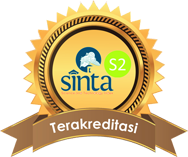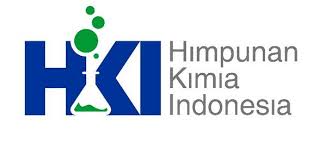EFFECTIVENESS OF INQUIRY-BASED LEARNING TOWARDS MASTERING THE CONCEPT OF UNSATURATED HYDROCARBONS IN UNDERGRADUATE STUDENTS
DOI:
https://doi.org/10.15575/jtk.v5i2.9078Keywords:
conceptual understanding, inquiry-based learning, OE3R strategy, unsaturated hydrocarbonAbstract
Inquiry learning can be applied to chemistry learning at any level of education. This is according to the characteristics of chemistry, which is based on empirical evidence for real-world study. One of the topics studied in Organic Chemistry Lecture is an unsaturated hydrocarbon that discussed the structure, nomenclature, properties, manufacture, and usability. There are various models or strategies of inquiry for chemistry learning, especially guided inquiry. One of the guided inquiry-based chemistry learning strategy innovations is the OE3R (Orientation - Exploration - Explanation - Elaboration - Reflection) strategy for various education levels, high schools, and universities. This research aimed to determine the effectiveness of guided inquiry-based learning with OE3R strategy in undergraduate students' conceptual understanding of the Unsaturated Hydrocarbon concept. The research using a Quasi Experiment with a pretest-posttest control group design. Conceptual understanding with OE3R Strategy proven to be better than Expository Strategy. This can be seen from achieving minimum completeness criteria, which is 92.3% for OE3R and 72.2% for expository. It can also be seen from the N-gain value for the OE3R Strategy (0.43), which is significantly better than the Expository Strategy (0.27).
References
Alhudaya, M. T., Hidayat, A., & Koeshandayanto, S. (2018). Pengaruh Inkuiri Terbimbing terhadap Keterampilan Proses Sains dan Pemahaman Konsep Optik Siswa Kelas VIII. Jurnal Pendidikan: Teori, Penelitian, Dan Pengembangan, 3, 1398–1404. DOI: http://dx.doi.org/10.17977/jptpp.v3i11.11747
Ambarsari, W. (2012). Penerapan pembelajaran inkuiri terbimbing terhadap keterampilan proses sains dasar pada pelajaran biologi siswa kelas VIII SMP Negeri 7 Surakarta. Jurnal Pendidikan Biologi, 5 (1).
Retrieved from https://jurnal.uns.ac.id/bio/article/view/5626
Andrini, V. S. (2016). The Effectiveness of Inquiry Learning Method to Enhance Students’ Learning Outcome: A Theoretical and Empirical Review. Journal of Education and Practice, 7(3), 38–42. DOI:10.2991/icomse-17.2018.28
Azizmalayeri, K., Mirshahjafari, E., Sharif, M., Asgari, M., & Omidi, M. (2012). The Impact of Guided Inquiry Methods of Teaching on The Critical Thinking of High School Students. Journal of Education and Practice, 3(10), 42–47. Retrieved from https://www.iiste.org/Journals/index.php/JEP/article/view/2530
Chan, K. Y. K., Yang, S., Maliska, M. E., & Grunbaum, D. (2012). An Interdisciplinary Guided Inquiry on Estuarine Transport Using a Computer Model in High School Classrooms. 74(1), 26–33. https://doi.org/10.1525/abt.2012.74.1.7
Enger, S.K. & Yager, R. E. (2009). Assessing Student Understanding in Science: A Standard-Based K-12 Handbook. California: Corwin A SAGE Company.
Fraenkel, J. R., Wallen, N. E., & Hyun, H. H. (1993). How to Design and Evaluate Research in Education (8th ed.). New York: McGraw-Hill.
Glackin, M., & Harrison, C. (2018). Budding biology teachers: what have botanical gardens got to offer inquiry learning. Journal of Biological Education, 52(3), 283-293.
https://doi.org/10.1080/00219266.2017.1357648.
Hanson, D. M. (2006). Instructor's guide to process-oriented guided-inquiry learning. Lisle, IL: Pacific Crest.
Haury, D. L. (1993). Teaching Science through Inquiry. ERIC/CSMEE Digest.
Imas, A. F., Sutrisno, S., & Widarti, H. R. W. R. (2020). OE3R Strategy Implementation as an Innovation on Inquiry-Based Learning toward Redox Reaction Mastery. Jurnal Ilmu Pendidikan, 25(1), 43-49. https://doi/10.17977/jip
Iskandar, S. M. (2011). Pendekatan Pembelajaran Sains Berbasis Konstruktivis. Malang: Bayumedia Publishing.
Izzatin, M., & Nurmala, R. (2018). Pembelajaran berbasis inquiry untuk melatih higher order thinking skills (HOTS) mahasiswa pendidikan matematika pada mata kuliah metode numerik. Edukasia: Jurnal Pendidikan, 5(2). https://doi.org/10.35334/edu.v5i2.1007
Khanifah, S., Pukan, K. K., & Sukaesih, S. (2012). Pemanfaatan Lingkungan Sekolah sebagi Sumber Belajar Untuk Meningkatkan Hasil Belajar Siswa. Unnes Journal of Biology Education, 1(1), 66–73.
Retrieved from https://studylibid.com/doc/1154239/1-hubungan-pemanfaatan-lingkungan-sekolah-dan-hasil-belajar
Kurniawati, D., Masykuri, M., & Saputro, S. (2016). Penerapan Model Pembelajaran Inkuiri Terbimbing Proses Sains dan Prestasi Belajar Pada Materi Pokok Hukum Dasar Kimia Siswa Kelas X MIA 4 SMA N 1 Karanganyar Tahun Pelajaran 2014 / 2015. Jurnal Pendidikan Kimia (JPK), 5(1), 88–95. ISSN 2337-9995
Lin, Y. I., Son, J. Y., & Ii, J. A. R. (2016). Asymmetric translation between multiple representations in chemistry. International Journal of Science Education, 0693(March). https://doi.org/10.1080/09500693.2016.1144945
Magfirah, A., Hidayat, A., & Mahanal, S. (2019). Penggunaan Media Audiovisual pada Model Inkuiri Terbimbing terhadap Keterampilan Proses Sains dan Penguasaan Konsep IPA. Jurnal Pendidikan: Teori, Penelitian, Dan Pengembangan, 4, 96–103. http://dx.doi.org/10.17977/jptpp.v4i1.11890
Margunayasa, I. G., Dantes, N., Marhaeni, A. A. I. ., & Suastra, I. W. (2019). The Effect of Guided Inquiry Learning and Cognitive Style on Science Learning Achievement. International Journal of Instruction, 12(1), 737–750. Retrieved from https://eric.ed.gov/?id=EJ1201135
Masruroh, A., Ibrohim, & Susilo, H. (2019). Pengembangan Pembelajaran Sains Berbasis Inkuiri Terintegrasi Nature of Science ( NoS ) dan Pengaruhnya terhadap Penguasaan Konsep. Jurnal Pendidikan: Teori, Penelitian, Dan Pengembangan, 4, 462–467. http://dx.doi.org/10.17977/jptpp.v4i4.12257
Mattox, A. C., Reisner, B. A., & Rickey, D. (2006). What happens when chemical compounds are added to water? An introduction to the Model-Observe-Reflect-Explain (MORE) thinking frame. Journal of Chemical Education, 83(4), 622. https://doi.org/10.1021/ed083p622
National Research Council. (2000). Inquiry and the National Science Education Standards: A Guide for Teaching and Learning/ Center for Science, Mathematics, and Engineering Education. Washington, DC: National Academy Press.
Nugraha, M. G., Kaniawati, I., Rusdiana, D., & Kirana, K. H. (2016, February). Combination of inquiry learning model and computer simulation to improve mastery concept and the correlation with critical thinking skills (CTS). In AIP Conference Proceedings 1708 (1) 070008. AIP Publishing LLC.
https://doi.org/10.1063/1.4941181
Panasan, M., Nuangchalerm, P., & Muang, A. (2010). Learning Outcomes of Project-Based and Inquiry-Based Learning Activities Department of Curriculum and Instruction , Faculty of Education , Mahasarakham University , Mahasarakham 44000 Thailand. Journal of Social Sciences, 6(2), 252–255. Retrieved from https://orcid.org/0000-0002-5361-0377
Pedaste, M., Mäeots, M., Siiman, L. A., De Jong, T., Van Riesen, S. A., Kamp, E. T., Zacharia, C. Z., & Tsourlidaki, E. (2015). Phases of inquiry-based learning: Definitions and the inquiry cycle. Educational research review, 14, 47-61.
Putri, P. N., Subandi, & Munzil. (2018). Pengaruh Strategi Inkuiri Terbimbing dan Kolb’s Learning Style terhadap Kemampuan Berpikir Tingkat Tinggi. Jurnal Pendidikan: Teori, Penelitian, dan Pengembangan, 3, 1656–1663.
http://dx.doi.org/10.17977/jptpp.v3i12.12561
Rahmawati, R., Handayanto, S. K., & Dasna, I. W. (2018). Pengaruh Learning Cycle 5E terhadap Keterampilan Proses Sains Peserta Didik Kelas VIII. Jurnal Pendidikan: Teori, Penelitian, dan Pengembangan, 3(3), 286-290. http://dx.doi.org/10.17977/jptpp.v3i3.10624
Sesen, B. A., & Tarhan, L. (2013). Inquiry-based laboratory activities in electrochemistry: High school students’ achievements and attitudes. Research in Science Education, 43(1), 413-435.
https://doi.org/10.1007/s11165-011-9275-9
Şimşek, P., & Kabapınar, F. (2010). The effects of inquiry-based learning on elementary students’ conceptual understanding of matter, scientific process skills and science attitudes. Procedia-Social and Behavioral Sciences, 2(2), 1190-1194.
Sulistyowati, E., Rohman, F., & Ibrohim. (2020). Perangkat Pembelajaran Inkuiri Terbimbing Berbantuan Handout Berbasis Potensi Lokal Hutan Mangrove untuk Meningkatkan Kemampuan Berpikir Kritis dan Sikap Peduli Lingkungan. Jurnal Pendidikan: Teori, Penelitian, Dan Pengembangan, 5, 374–379. http://dx.doi.org/10.17977/jptpp.v5i3.13272
Supasorn, S., & Promarak, V. (2015). Implementation of 5E inquiry incorporated with analogy learning approach to enhance conceptual understanding of chemical reaction rate for grade 11 students. Chemistry Education Research and Practice, 16(1), 121-132.
https://doi.org/10.1039/C4RP00190G
Sutrisno, Nanda, G. A. M., & Widarti, H. R. (2020, April). The effectiveness of inquiry based learning with OE3R strategy for conceptual understanding of molecular shape of high school students’. In AIP Conference Proceedings 2215 (1), 020025. AIP Publishing LLC.
https://doi.org/doi.org/10.1063/5.0000620.
Sutrisno. (2018). OE3R (Orientasi- Eksplorasi-Eksplanasi-Elaborasi-Refleksi): Sebuah Inovasi Strategi Pembelajaran Sains-Kimia Berbasis Inkuiri. Prosiding Seminar Nasional Kimia Dan Pembelajarannya (SNKP), 48-60, Malang: Universitas Negeri Malang.
Talanquer, V. (2011). Macro, Submicro, and Symbolic: The Many Faces of The Chemistry “Tripletâ€. International Journal of Science Education, 33, 37–41.https://doi.org/10.1080/09500690903386435
Villagonzalo, E. C. (2014, March). Process oriented guided inquiry learning: an effective approach in enhancing students’ academic performance. In DLSU Research congress 2 (1), 1-6.
Wenning, C. J. (2005). Levels of Inquiry: Hierarchies of Pedagogical Practices and Inquiry Process. J. Phys. Tech. Edu, 3–11.
Widarti, H. R., Sutrisno, Sulistina, O., & Muchson, M. (2018). Uji Coba Implementasi Strategi OE3R (Orientasi - Eksplorasi - Eksplanasi - Elaborasi - Refleksi) Pembelajaran Dasar-dasar Kimia Analitik di Jurusan Kimia FMIPA UM. Prosiding Seminar Nasional Kimia Dan Pembelajarannya (SNKP), 61-68, Malang: Universitas Negeri Malang.
Zeidan, A. H., & Jayosi, M. R. (2015). Science Process Skills and Attitudes toward Science among Palestinian Secondary School Students. World Journal of Education, 5(1), 13–24. https://doi.org/10.5430/wje.v5n1p13
Downloads
Published
How to Cite
Issue
Section
Citation Check
License
Authors who publish with this journal agree to the following terms:
- Authors retain copyright and grant the journal right of first publication with the work simultaneously licensed under a Creative Commons Attribution-ShareAlike that allows others to share the work with an acknowledgement of the work's authorship and initial publication in this journal.
- Authors are able to enter into separate, additional contractual arrangements for the non-exclusive distribution of the journal's published version of the work (e.g., post it to an institutional repository or publish it in a book), with an acknowledgement of its initial publication in this journal.
- Authors are permitted and encouraged to post their work online (e.g., in institutional repositories or on their website) prior to and during the submission process, as it can lead to productive exchanges, as well as earlier and greater citation of published work (See The Effect of Open Access).









